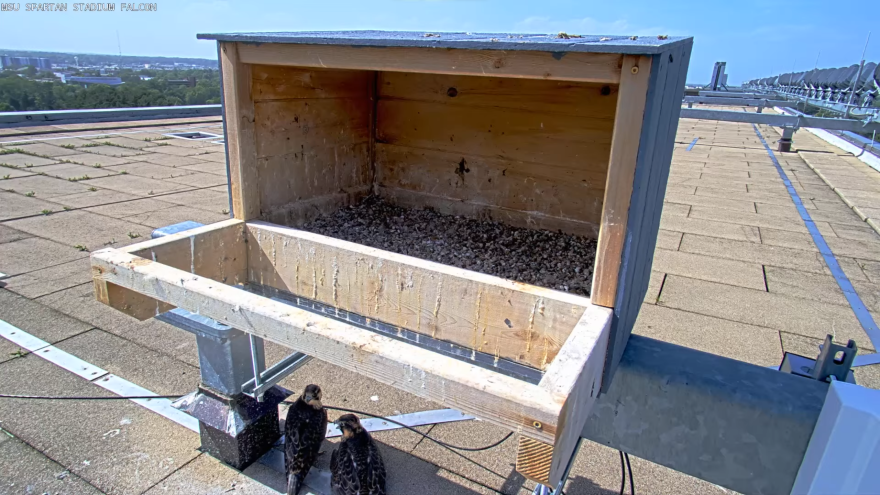The last of three young peregrine falcons left a nest box Wednesday morning located on top of Spartan Stadium at Michigan State University.
A Youtube livestream showed Wednesday that at least two of the chicks, which hatched last month, were still roaming the stadium's roof, near the box.
MSU Fisheries and Wildlife Club Advisor Jim Schneider said the falcons are expected to migrate south sometime in November.
“It’s nature, that’s what we want. This is what we’re expecting, this is all part of their biology,” Schneider said.
Jennifer Owen is a professor at MSU and an expert in behavioral ecology of migratory birds, she says peregrine falcons are sensitive to the environment.
The falcon was once an endangered species, but is now recovered thanks to the banning of the insecticide DDT and human efforts like nesting boxes, Owen said.
“With humans invading natural areas, species oftentimes don’t have the habitat that they need,” Owen said.
Owen says nesting boxes can mitigate that impact, adding that the falcon is an important indicator of environmental health.
“It’s amazing the fascination that people have had with these peregrines. And that’s a connection to nature and connecting people to nature in whatever form you can do. That is so critical for people wanting to preserve our natural environment,” Owen added.
Schneider is excited that the club was able to help add three new falcons to the now stable population of peregrines.
Since the chicks are banded, Schneider said he’s hopeful someone who happens across them will be able to track their movements, though it’s unlikely they’ll come back to MSU after migrating.
Genevieve’s story is brought to you as part of a partnership between WKAR and Michigan State University's Knight Center for Environmental Journalism.

